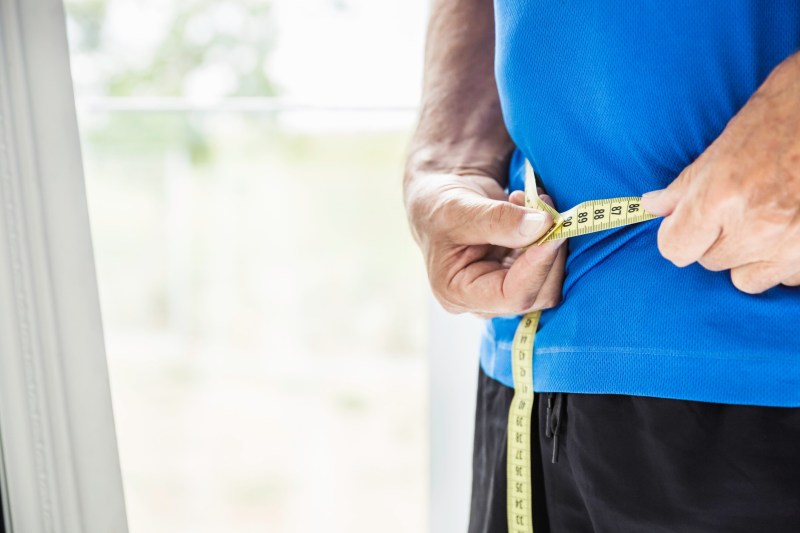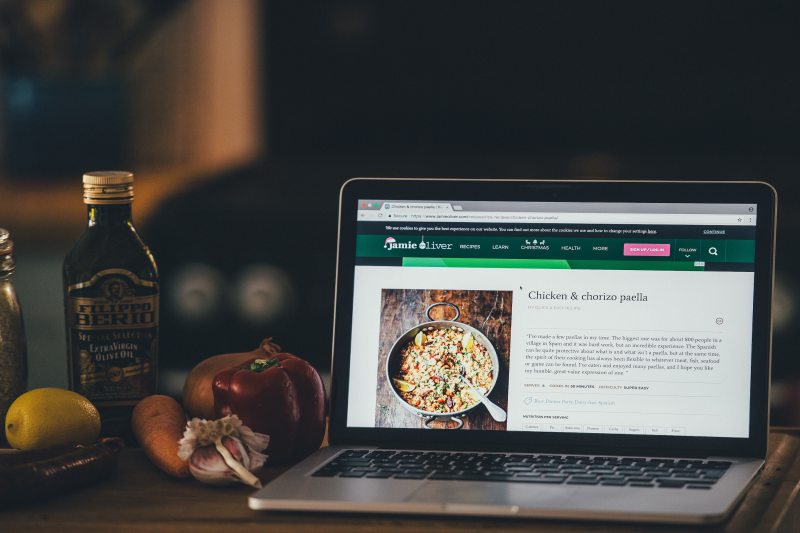The 7 best nutrition apps to help you reach your fitness goals

In today’s fast‐paced world, using technology to improve health has never been easier. One way many people do this is through nutrition apps. With tools for calorie counting, meal planning, and even behavior coaching, the best nutrition apps empower you to make informed food choices and monitor your progress, making healthy eating and living more accessible than ever.
As a trainer and nutritionist, I always encourage my clients to use nutrition apps when trying to reach a goal, so they always understand exactly how many calories and grams of protein they are consuming. We’ve looked at some of the best nutrition apps and listed out their pros and cons to help you choose the best one for your fitness goals.
What are the benefits of using a nutrition app?
Precise food tracking
Nutrition apps help you log your daily intake accurately, and this gives you detailed data on calories, macronutrients, and even micronutrients. This level of tracking enables you to spot nutritional gaps in your diet and adjust accordingly.
Time-saving meal planning
Nutrition apps often offer meal suggestions, customizable grocery lists, and automated recipe creation. All these features enable you to plan your meals effectively without racking your brain about the right foods to eat to achieve your fitness goals.
Personalized insights and motivation
Nutrition and meal-tracking apps provide personalized dietary recommendations and progress reports. This helps with motivation because real-time feedback can encourage better food choices and keep you accountable in your fitness journey.
Do nutrition apps help with fitness goals?

Using nutrition apps is one of the best ways to prime your nutrition to make reaching your fitness goals easier. These apps allow you to monitor calorie intake and nutritional balance, making it easier to fuel your body for exercise.
A 2021 PubMed research paper states: “Nutrition apps are effective in changing eating behavior and diet-related health-risk factors.” This means that nutrition apps are not only instrumental in helping people reach their fitness goals but they also help people maintain a healthy, longevity-focused diet, which also influences general fitness and wellness.
Factors to consider when choosing a nutrition app

Ease of use and user interface
Look for an app with an intuitive design that makes logging meals, scanning barcodes, and navigating features straightforward. A clutter-free interface would make consistency easier.
Comprehensive food database
A large, reliable food database is key for accurately tracking meals. The more foods and brands the app recognizes, the less time you’ll spend manually entering nutrition data.
Integration with fitness trackers and other applications
The best nutrition apps sync with your wearable devices or other fitness apps. This integration ensures that your activity data, calorie burn, and nutrition logs work together to help you crush your goals.
7 of the best apps for nutritional guidance and tracking

MyFitnessPal
MyFitnessPal remains a top choice for its enormous food database (over 18 million global food items) and a powerful barcode scanner that makes meal logging effortless. It offers customizable calorie budgets and integrates well with numerous fitness devices.
Pros:
- Extensive food database for accurate logging
- User-friendly interface with detailed nutritional reports
- Integration with wearables and fitness apps
Cons:
- Premium features can be expensive
- Some users report occasional glitches in the interface
Cronometer
Cronometer excels in tracking not only calories and macronutrients, but also over 80 micronutrients. Its detailed nutrient reports make it ideal for users who want a comprehensive look at their dietary intake.
Pros:
- Detailed nutrient tracking and customizable goals
- Accurate and verified food entries
- Syncs with multiple devices for comprehensive monitoring
Cons:
- The level of detail can feel overwhelming for beginners
- Premium version is necessary for advanced features
Lifesum
Lifesum offers a visually appealing interface and personalized meal plans to suit various dietary goals, including weight loss, muscle gain, and general health. It provides food logging, intermittent fasting guidance, and motivational tips to keep you on track.
Pros:
- Beautiful and intuitive design
- Customizable meal planning and fasting tracker
- Supports various diets with tailored recommendations
Cons:
- There’s limited customization in the free version, and many advanced features are behind a paywall
Fooducate
Fooducate goes beyond calorie counting by grading foods based on their nutritional quality. It helps you identify harmful ingredients and suggests healthier alternatives. Its built-in scanner makes it simple to check nutrition labels on the go.
Pros:
- Easy-to-understand food grading system
- Scans barcodes for quick nutritional analysis
- Offers educational tips on improving dietary choices
Cons:
- Lifetime subscription fees may deter some users
- Interface may not be as sleek as other apps
Lose It!
Lose It! is designed to simplify weight loss with personalized calorie budgets and meal tracking. It features a “Snap It” function that lets you photograph meals to estimate calorie counts, making food logging both fun and efficient.
Pros:
- Innovative “Snap It” feature for quick logging
- Personalized calorie goals based on your weight and activity
- Social features that allow progress sharing with friends
Cons:
- Some advanced features require a premium subscription
- There can be issues with the food database accuracy
HealthifyMe
Originating from India, HealthifyMe offers an extensive food database tailored to regional cuisines along with personalized diet plans created by nutrition experts. Its AI-driven digital nutritionist “Ria” provides instant guidance, making it a powerful tool for achieving fitness goals.
Pros:
- Regional food database for accurate tracking
- AI-powered nutritionist offers personalized advice
- Integrates diet, exercise, and wellness coaching in one platform
Cons:
- The free version has limited features compared to the previous model
- Some users may find the interface busy
Yazio
Yazio provides a user-friendly platform for meal tracking, and it offers detailed insights into your calorie and nutrient intake. It supports custom meal plans and intermittent fasting and is a versatile tool for those looking to optimize their diet and reach fitness targets.
Pros:
- Clean and intuitive interface
- Customizable meal plans and fasting features
- Detailed nutritional insights with a large food database
Cons:
- Some features require a paid subscription
- Limited integration with other fitness apps compared to competitors
Frequently asked questions

What app do nutritionists use?
Nutritionists use different apps depending on the features they need most. For example, apps like HealthifyMe and Cronometer have detailed nutritional tracking and regional food databases. On the other hand, apps like Lifesum and Fooducate are useful when nutritionists need detailed breakdowns of foods’ nutritional content.
Which app is better between Lose It! and MyFitnessPal?
Both apps have large food databases and innovative features like barcode scanning and photo logging. However, MyFitnessPal is often favored for its extensive data and integration with wearables, while Lose It! is praised for its user-friendly “Snap It” feature. Your choice would depend on personal preference and budget.
What is the best food tracking app for free?
For those looking for a free option, MyFitnessPal’s basic version and Yazio offer robust food tracking features without the need for an immediate subscription. They provide comprehensive calorie and nutrient logging that works well for most users.
Related
Yaslen Clemente Shows Off Leg Day Gains and Shares Her…
Yaslen Clemente isn't just an influencer—she's a fitness powerhouse. The social media star is known for her intense workouts, and she recently sha
Samantha Espineira Stuns in Blue Swimsuit and Shares Her 5…
Samantha Espineira knows how to turn heads, both on and off the runway. The successful model and Instagram influencer regularly shares breathtaking
The Best Fitness Trackers To Help You Reach Any Health…
Best Health Tracker: Oura Ring 3Why We Love It: I’ve tried many, many fitness trackers—but I tend not to stick with one watch or band for very long. I’ve
#CycleSyncing debunked: Popular TikTok trend not backed by science
A new study has debunked a popular TikTok wellness trend called cycle syncing, which claims that tailoring a workout routine to match the hormonal changes that












